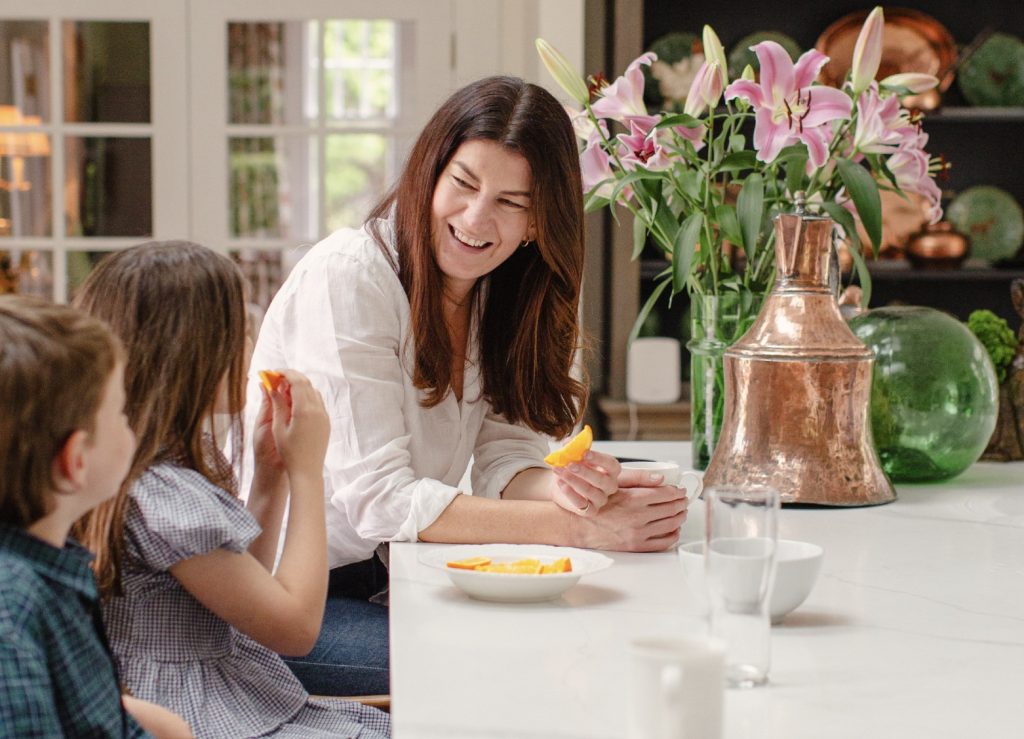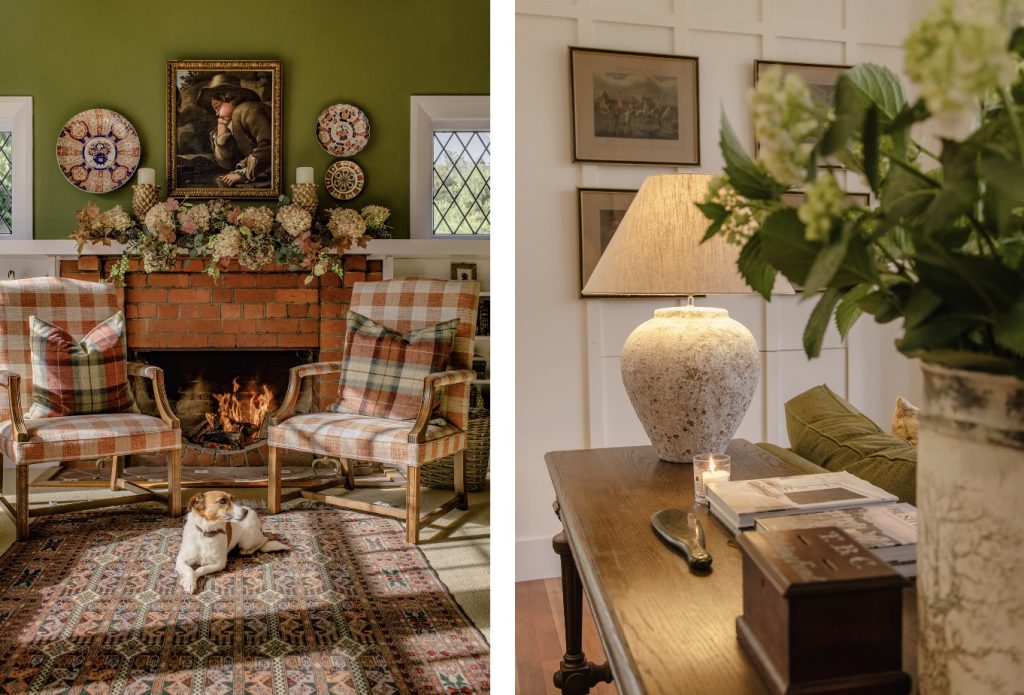Amplifying Women
With a mission to amplify the connection between leadership, women, food and global sustainable goals, Lindy Nelson is leading the way to partnership and purpose, both at home in Eketāhuna, and in the agriculture sector. Words Lucinda Diack, Photos Alanah Brown.
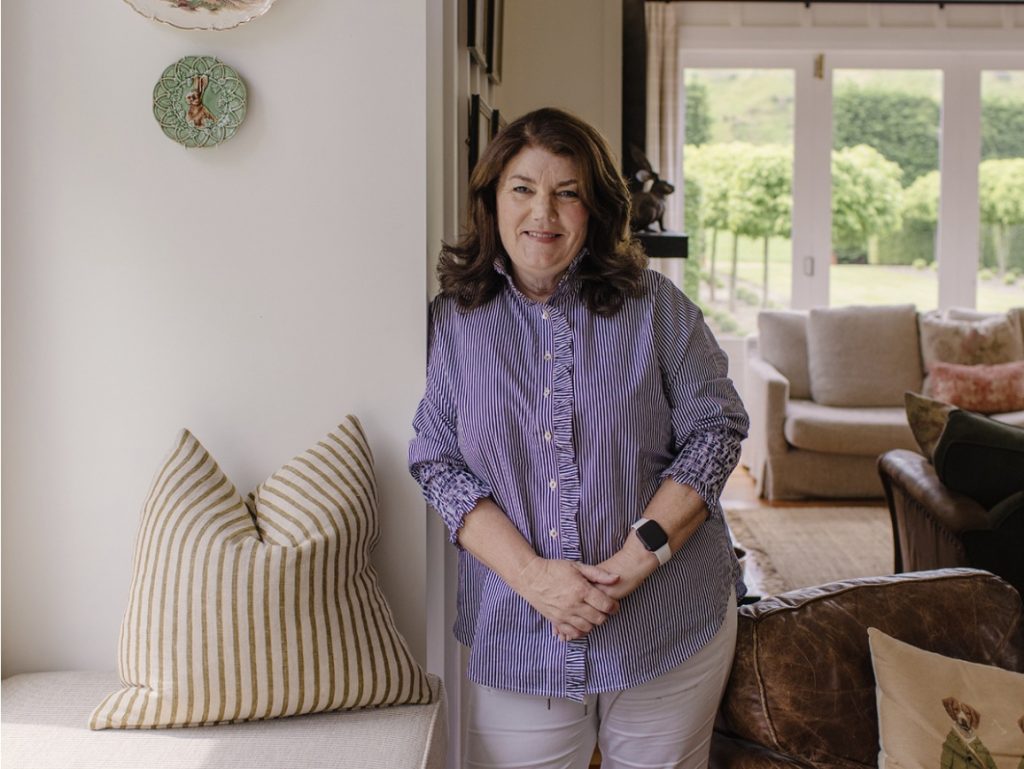
Instant gratification has become almost a requirement in today’s society – at every turn, at every decision we are seeking an outcome. A tangible impact that we can see, experience and measure against. It takes exceptional insight and integrity to invest in a project where the impact will take years, if not decades to fully take root, where at best you will only see and experience the ripples of your hard work. It is this generational impact of leadership that sets Lindy Nelson apart. And something I sense she would be quietly reluctant to be credited with.
In 1987, when Lindy uplifted her life as an emergency nurse to move to the depths of Eketāhuna for the ‘great love of her life’ David, she had no idea what the future would hold – and certainly wouldn’t have thought she would be a Member of the New Zealand Order of Merit for contributions to agriculture and women, speak on a world stage at APEC or help the Scottish Government develop a women in agri strategy given those first few years of life on farm.
David and Lindy’s is a love story that began in the Marlborough Sounds – a place they still hold dear. ‘It was love at first sight,’ they agree.
‘When you know, you know,’ says David, and it is clear, nearly 40 years on, that nothing has changed.
‘When women find purpose and a sense of belonging – they have a greater sense of confidence.’
‘Within two weeks of meeting David I was there on the farm visiting,’ reflects Lindy, and the rest they say is history. ‘Working as an emergency nurse I was often out on the Westpac helicopter, so I was used to operating as part of a high-performing team.’ And being part of an efficient team continued after joining David on farm, except this time, there was a deeper level of personal investment in the performance outcomes.

‘Farmers are wonderful jack of all trades,’ says Lindy. ‘I became an extra pair of unpaid hands and looking back, probably six to eight weeks into the marriage, if it had been based on my practical farm performance, I may not have been asked to stay!’ she laughs. ‘In fact a turning point for us was when David sat me down over the cornflakes one morning and said that we needed to free up my future. My skills were better funnelled elsewhere, rather than on the farm. Don’t get me wrong – I still did my time with back pack on, drenching in the yards, helping David; we are a partnership – but he knew that there was more I could be doing.’
It was a conversation that saw Lindy retrain as a Plunket nurse and begin the first step in her close working relationship with women in the agri sector.
The Importance of Belonging
Lindy talks passionately about the basic human need of belonging. A fundamental pillar of mental health and emotional wellbeing that can often get misplaced. ‘When we feel like we don’t belong, we stop offering our opinions, our creative thinking and our unique skill sets,’ she says.
A position Lindy relates to, having struggled to find her place in her rural community in the 1980s. ‘All too often we see women with decades of experience leading teams and qualifications in
all sorts of fabulous things move to a rural community for love and struggle to find that sense of contribution and belonging.’ A concept still very much relevant today.
In 2001 Lindy found herself stepping into her first directorship when she joined the fight to halt the closure of the Wairarapa District Health Board. ‘I was 34 and never thought I would get elected, but I knew I had to speak up. It was a period of my life that showed me very quickly that women think differently. How we operate, how we make decisions, how we come to those decisions, is very different from our counterparts. I began to think about what else we could achieve if we set our minds to it.’
The Untapped Potential
Recognising that rural communities are a melting pot of talent led Lindy to thinking about how to nurture and unleash the latent potential of 50 per cent of those living on farm who were struggling to find their sense of place and purpose.
And so began her research to amplify the connection between leadership, women, food and global sustainable goals. ‘What began as a mission turned into three years of research, which became the formation of an organisation that has transformed how our sector sees and helps women feel like they belong and contribute,’ she says. ‘And boy do they contribute.’ Standing in parliament alongside Patron Mavis Mullins, the Agri-Women’s Development Trust (AWDT) was officially launched in 2010. A feat that set in motion ripples for the future of women, here and overseas. Ripples that will continue to be felt for many more years to come.
Known for his own forward thinking and dedication to developing potential within his farming – or ‘farm-ily’ as they warmly refer to their staff – operation, David was well poised to aid his wife’s research and welcomed the phone calls that started to come from other farmers sharing their stories about how their marriage and farming system had changed with the AWDT. ‘We had to take men on this journey too,’ says Lindy. ‘We needed to empower them for their choice in partner as when we have that beautiful synergy of female and masculine energy on farm, we are creating a balance of success.’
‘Women are key in building a sense of community,’ says David. ‘No matter where people live in New Zealand, they are attracted to the land and way of life on farm; we need to nurture that connection and protect that fabric of society in our country. Women embrace a different way of thinking that allows this to be achieved and sustained.’
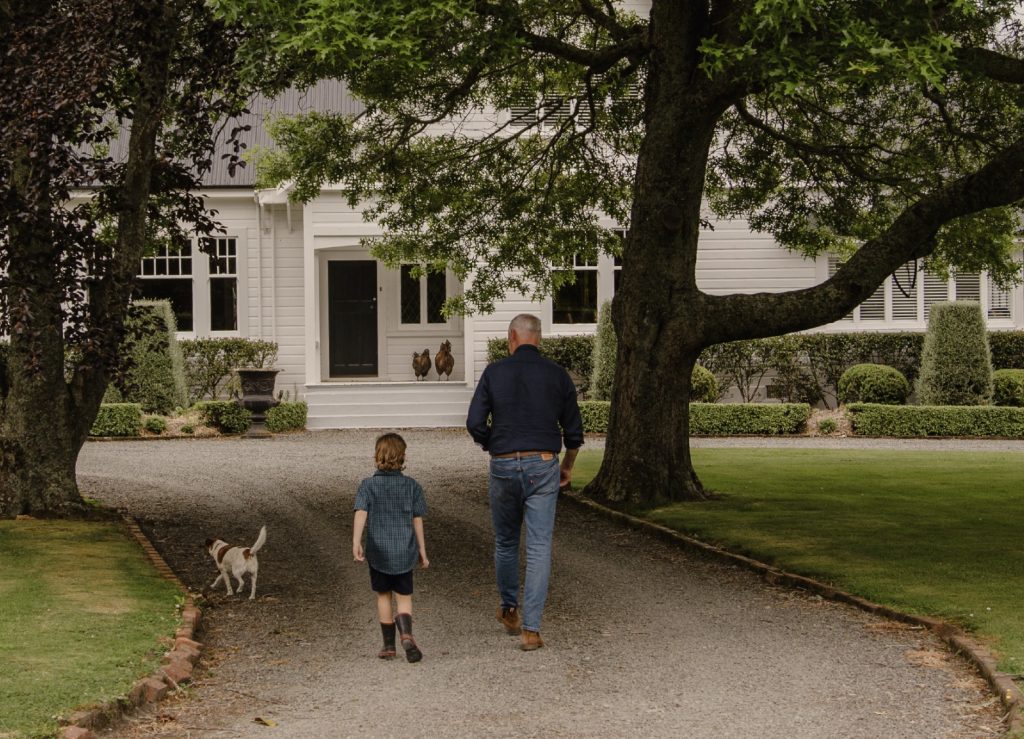
The partnership and connection between David and Lindy is evident within moments of meeting them. They are the yin to each other’s yang and a physical realisation of the success of Lindy’s research. ‘There is nothing without partnership,’ she says. ‘Yes, it has been great to see women lead, but to see farming partnerships become stronger alongside stronger marital partnerships … that has been really special. These women have helped their farmer be exceptional. And vice versa.
‘When women find purpose and a sense of belonging – they have a greater sense of confidence, which allows them to contribute more – and that is where everything changes, where the magic happens. I am proud to have been a part of that,’ says Lindy as she reflects on her decision to step back from AWDT in 2020.
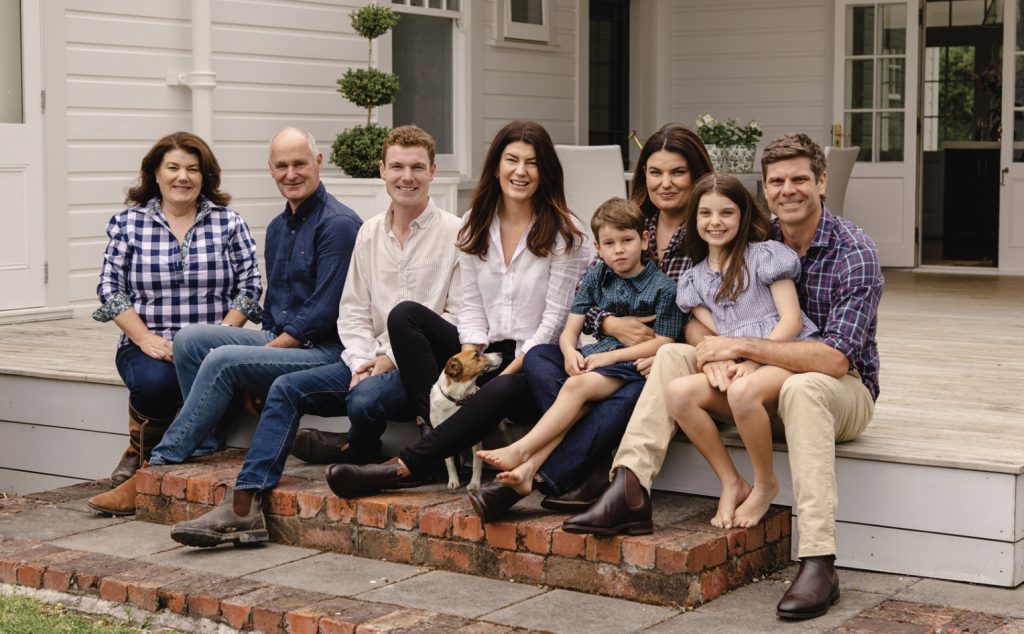
In recent years, Lindy has turned her attention to the next challenge in the agri sector – health and safety with her role as Chair of Safer Farms. ‘We had never had a national strategy in Aotearoa before this,’ she explains. ‘Yet agriculture remains one of the most dangerous places for Kiwis to work. Our Farm Without Harm strategy is a new approach to solving our challenges. It’s about working together to curb the human cost in producing food and fibre by designing harm out of farming, sharing knowledge and experience. The pathway is under way and again I think women and their ability to think differently, to ask the questions and get curious, will be key to change.
‘I remember being a young bride, struggling to fit into the local community with my pink jumpsuit, big shoulder pads and even bigger hair, and thinking there were two key factors that need to be addressed in agriculture. We needed to do more to harness the talent of women in rural communities; and reduce harm on the farm. It is an honour to have been part of solving the first and to now use that success to help influence the second. But we have a long way to go. The journey is just beginning.’
What you need to succeed ……
Find bubble enhancers, not bubble poppers Make sure you have at least two other women (or men) in your camp cheering you on. These are people you need to keep you going when you think you can’t go any further. For me these were, and continue to be, David, Theresa Gattung and Mavis Mullins.
Are you in competition or in service?
When we are in service with each other we are teaching each other, enabling our creative thinking and our possibilities. We are curious and comfortable with asking the questions – to the point perhaps that it doesn’t matter if we fail, we just need to try.
If we are in competition with each other, we are distracting ourselves from what can be achieved. Find those who share your passion – the enablers. Avoid the distractors.
